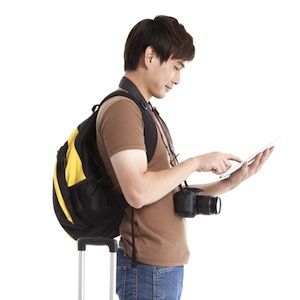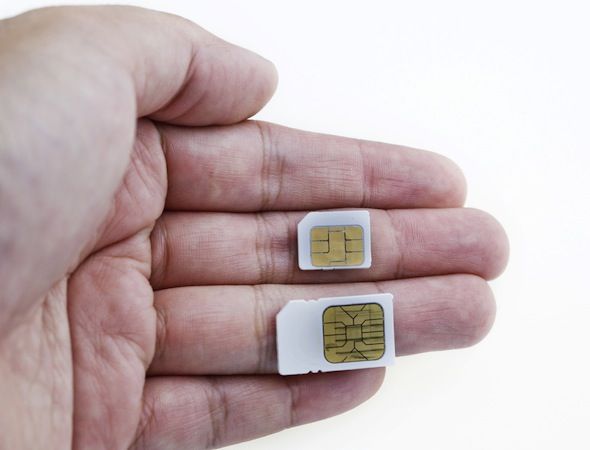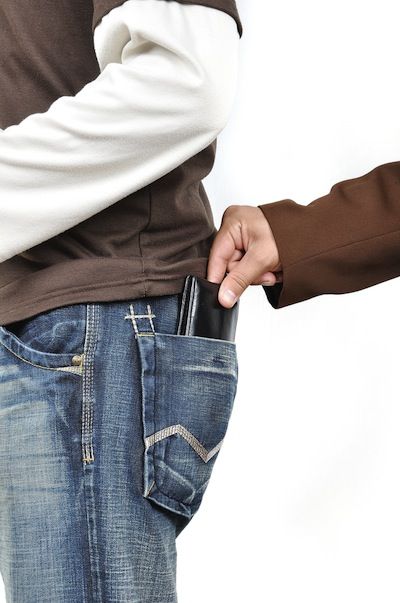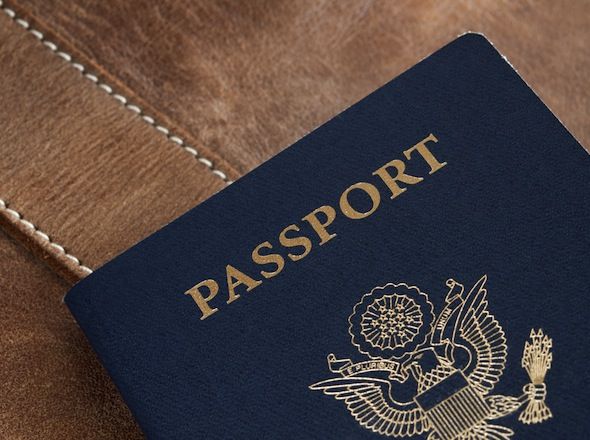If you're about to go international with your smartphone, tablet and/or laptop there are a few things you should know before you go. You might need extra peripheral devices and plugs, entertainment and maps pre-downloaded, a new SIM card for data, and to prepare for a few important security scenarios.
Wherever you go and whatever your trip will involve, these tips will prepare you for things as best as possible. The last thing you need is to lose a smartphone full of data with no way of protecting yourself! Here's what you need to know.
Work Out What International Plugs You'll Need
Since the standard electrical socket type is different wherever you go in the world, it's handy to have the right plugs for the places you're going. There are useful websites you can use to find out which type of socket to expect though, like PlugsMap. Also, remember to pack your USB charger and car charger into your cabin bag as you can sometimes find places to charge devices on the plane or in airports.
Ensure You Don't Use Expensive Wireless Data Plans
When you're travelling internationally it's worth noting that your regular data plan will probably cost you a fortune. Turn 3G off, disable notifications and push services, then do not touch it even for a minute unless you know you've got a good deal. Most people are horrified at how expensive international data costs are.
If you're travelling through lots of different countries, you might consider getting an international data SIM. If you'll spend most of your time in one country, it might be better value to get a data SIM for that one country or rely on a local hotspot network. Ask your current provider if they have any preferred partners in the country you're heading to as you could get a better rate. Whatever you do, hunt around for the best deals before you choose your method.
When considering your SIM choice, don't forget to get the correct size SIM for your device! The iPad and iPhone 4 use a micro SIM, while most other devices use a full size SIM. You may also want to bring along any custom-made tool you need to remove your SIM.
Another data-conserving tip is to download as much as possible to your devices while using free Wi-Fi. Use apps like Instapaper to save websites you want to read in advance, while also adding music, movies and books to your device well in advance.
Plan Ahead & Get Offline GPS Maps
There are a huge range of maps available for smartphones and tablets. Ideally, what you need is one which allows you to get the maps you'll need in advance and then find your location using GPS, without data access, later. Google Maps is very good at this, but there are plenty more you can consider too.
Bookmark All The Best Travel Deal Sites & Tourist Info
When you're in a new area, apps like Foursquare can be a great way to find out about the best restaurants and bars. But most tourism offices have applications these days too, so do some research and get hold of them if possible. If there's no application, they may at least have PDF versions of travel guides you can download and read while in transit.
You might also like to check out these great sites for hotel deals and other useful travel information:
- 10 Best Hotel Search Engines To Get The Best Deals When You Travel
- 8 Best Websites To Find Summer Retreats You’ll Never Forget
- 6 Most Useful US Government Websites For International Travelers
- The Best Travel Deals Sites To Save Cash On Your Next Vacation
You May Need Wireless Peripherals
If you've tried to cut down on the amount of luggage you're bringing and are therefore travelling with a tablet, you may think you don't need a keyboard or mouse. But what happens if you're suddenly required to do a few fiddly things for work or to make a Skype call? Would your tablet keyboard and microphone be good enough? Maybe it's worth packing a few peripheral devices in your main luggage just in case. I also like to carry a headphone splitter so that I can share the sound for movies or music I'm enjoying.
- Need An Affordable Keyboard For Your Tablet? Here Are Some Good Options
- 4 Excellent Mice For Everyday Use Under $50
- 5 Quality Headphones That Cost Less Than $50
- Better iPhone Audio & Video: Adapters, Microphones And Accessories For Superior Sound [iPhone]
Travelling Tablets Need Protecting
You might not need a case for your tablet for everyday use, but once your travelling things are different. You need free hands to go through airport security and carry luggage, so those tablets are going to be shoved into bags and possible handled by people other than yourself. Get a case if you want to protect your tablet properly.
Extreme changes in temperature may also affect your tablets, as it allows condensation to form inside the device. Also, extreme cold may affect the battery life of your device. For best results, keep your tablet insulated when travelling in extreme weather.
Protect Yourself Against Theft Of Your Devices & Data
Travelling will take you to busy places, some of them more notorious for crime than others. Regardless of the area, as a traveller you are a prime target. There are several things you can do to protect yourself against device theft or to help in the aftermath:
- Carry your devices near your body.
- Don't get too distracted when using tablets or phones in public spaces.
- Purchase insurance for your devices (and make sure you are covered internationally and for potential work usage).
- Keep your devices locked when not in use. You might also consider the risks of leaving your applications logged in on your device.
- Don't log into sensitive accounts while using public Wi-Fi.
- Back up your devices before you leave and when staying with friends while travelling.
- Keep back-ups on-the-go by syncing with web storage like Dropbox or Box.
- Install applications to help you retrieve a lost phone or tablet - or to delete the data remotely (for iPads, enable the "Find This iPad" feature before you go).
Also note that many border security agents have the power to examine your devices and sometimes to ask for you to decrypt partitions. If you're security paranoid, it's best to bring only devices with clean installs and no personal data on them whatsoever (definitely nothing illegal!). This goes double for workplace devices.
Protect Against RFID (Radio Frequency Identification) Skimming
Here's another travel tip for the technically minded. When you're in a busy place like an airport carrying all your most vital identification and credit cards, you're at risk of having that information stolen by RFID skimmers. Many passports and credit cards these days have RFID chips in them, which are vulnerable to being read by identity thieves who are carrying a portable card reader.
It's possible to buy an RFID blocking passport protector from places that sell anti-theft and travel security goods. It's also an idea to put your credit cards in there while you're in busy places.
More Great Travel Tips
Since you're a techy who loves travelling, you'll probably appreciate these articles too:
- How To Create Your Own Online Proxy Server In Minutes
- 3 Tools to Control Your PC from A Distance Using Remote Access
What are your best travel tips for travelling with tech gear?
Image Credit: Shutterstock, Shutterstock, Shutterstock, Shutterstock, Shutterstock





